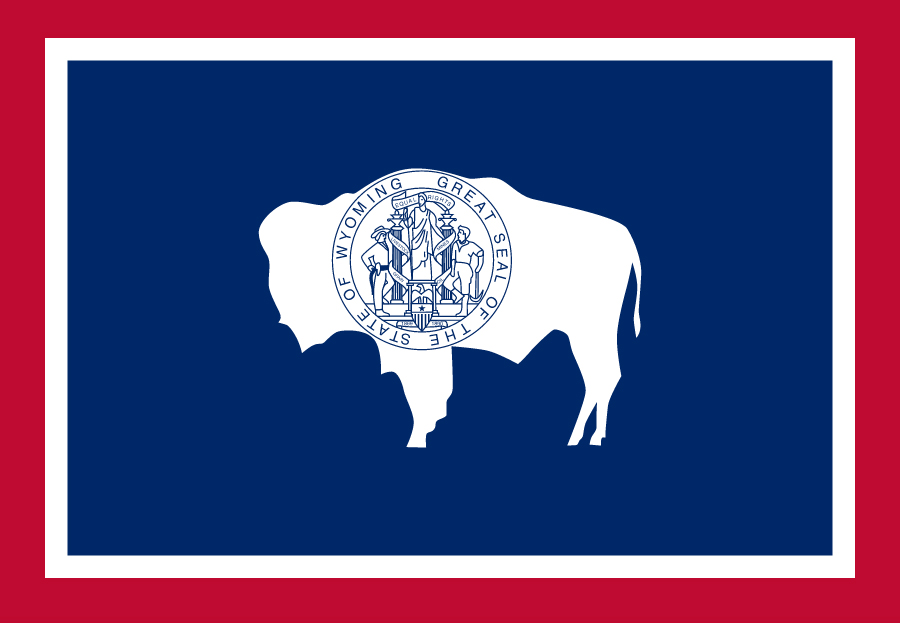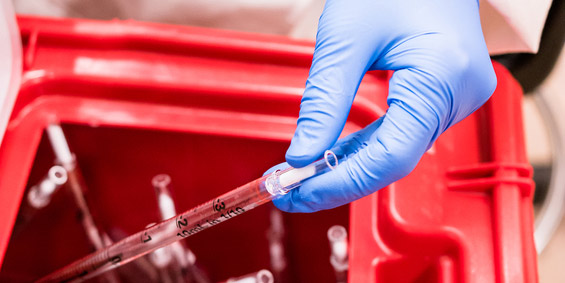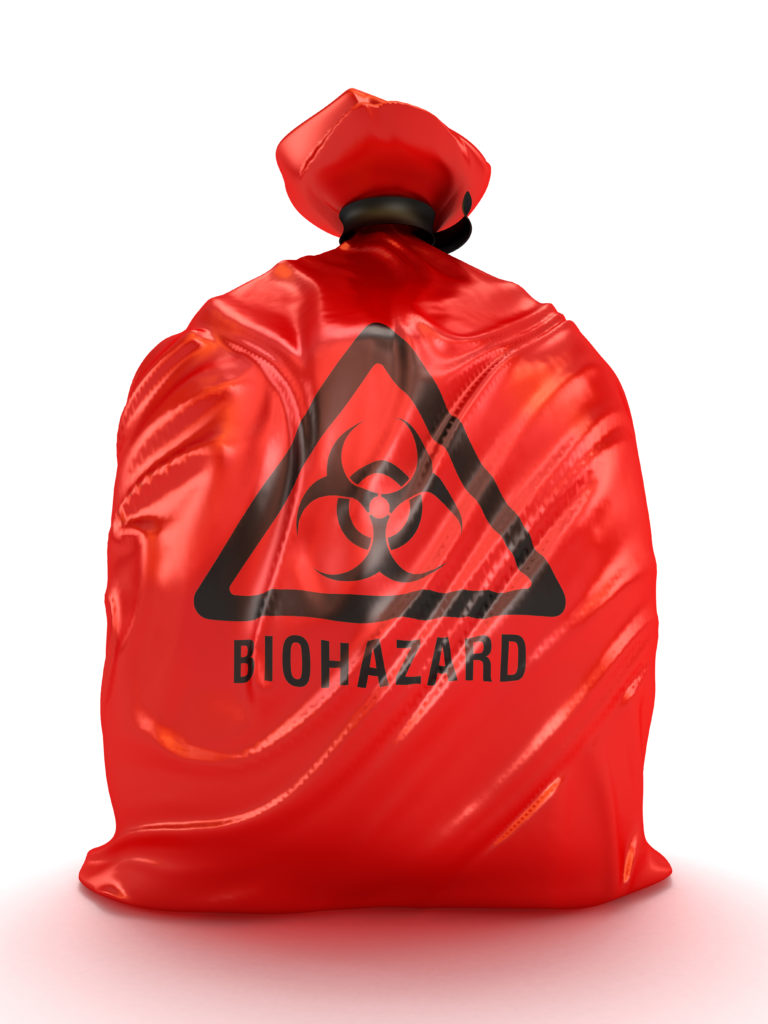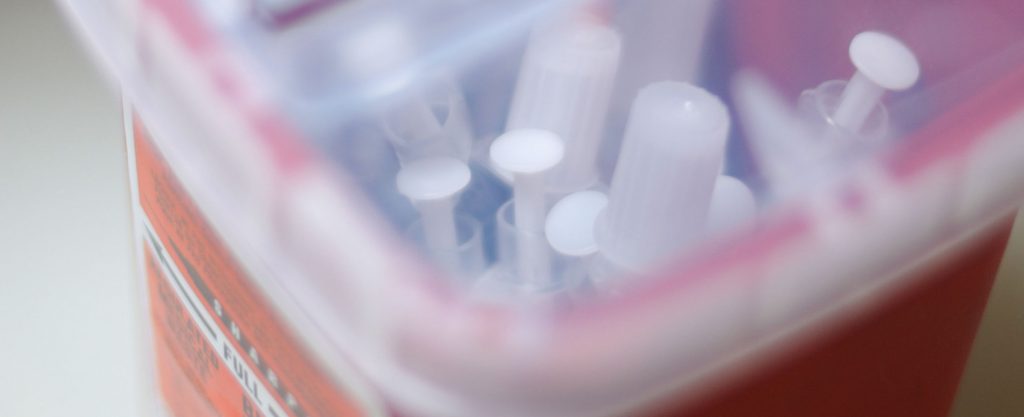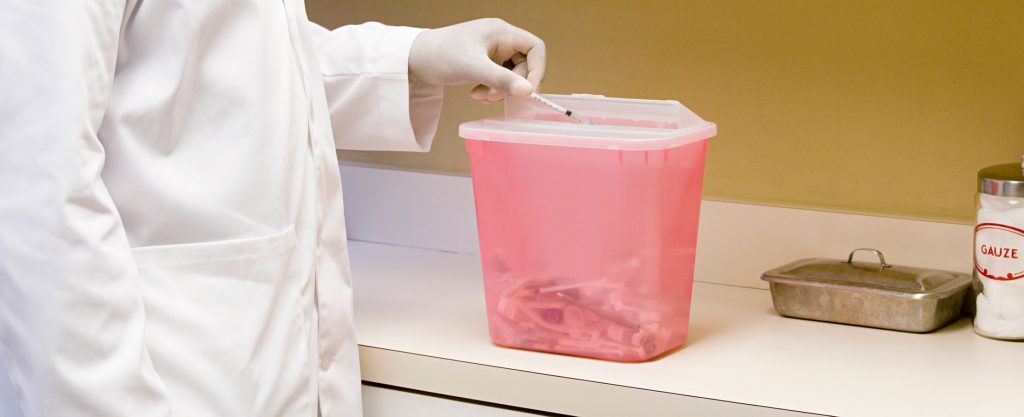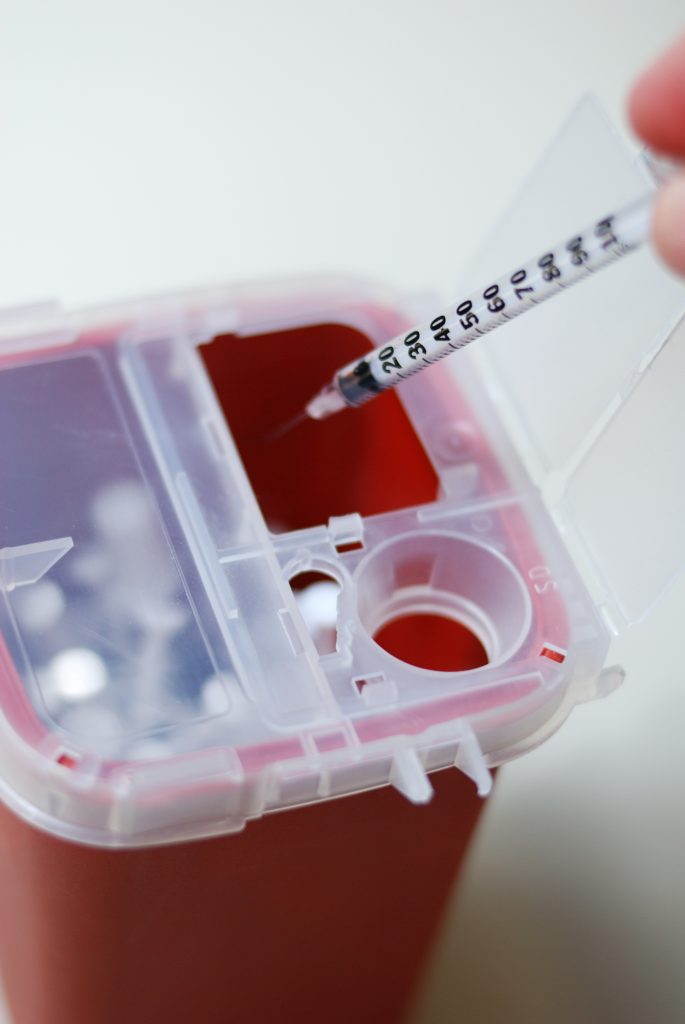Medical Waste
Wyoming Medical Waste Requirements
A look at Wyoming medical waste requirements. The Wyoming Department of Health and Wyoming Department of Environmental Quality Solid and Hazardous Waste Division govern the state’s medical waste and disposal regulations, many of which mirror other states. In Wyoming, medical waste refers to any waste generated in the diagnosis, treatment, or immunization of human beings…
Read MoreAre Used Saline Bags Considered Medical Waste?
Many items used in a healthcare facility are considered medical waste, but what about saline bags? There are plenty of waste items under the medical waste umbrella that are obviously infectious waste, but there are others that fall into a gray area and it can be confusing as to how to dispose of them. While…
Read MoreWisconsin Medical Waste Requirements
A look at Wisconsin medical waste requirements. In the state of Wisconsin, medical waste has a few different names. Biohazardous, red bag, and regulated medical waste all refer to waste that is infectious in nature, and it must be segregated from all other waste types. Of course, not all medical waste is produced in a…
Read MoreAdministering the Annual Flu Shot? Here is What You Need to Know about HIPAA’s Privacy Rule
Do you know where and how the personal health information of your patients is being stored? While the seasonal flu can fluctuate year round, the CDC states that flu season can begin as early as October and continue into as late as May. With flu season underway, many are headed to receive their annual flu…
Read MoreWest Virginia Medical Waste Requirements
A look at West Virginia medical waste requirements. West Virginia’s medical waste disposal is managed by the Office of Environmental Health Services Public Health Sanitation Division and outlines the specifics of how generators must treat and dispose of infectious waste. In the state of West Virginia, medical waste is referred to as infectious medical waste…
Read MoreBiomedical Waste, Infectious Waste, Pathological Waste (Oh My!)
Medical waste can be identified by a few different categories, but not all are the same. When it comes to medical waste, there isn’t a one-size-fits-all solution. There are actually several forms of waste that are considered hazardous, and each come with its own unique set of requirements for proper disposal. Whether it’s biomedical (or…
Read MoreWashington Medical Waste Requirements
A look at Washington medical waste requirements. Each of our 50 states have developed rules and implemented regulations for medical waste. The state rules vary to some extent, including terminology, but all are bound to the same federal laws, many of which the states have adopted as their own. Washington’s medical waste disposal regulations are…
Read More5 Reasons We’re Thankful for Modern Medical Waste Practices
If it weren’t for modern medical waste disposal laws, regulations, and technologies, our communities and our environment would be in serious danger. Modern medical waste removal is governed by many laws, so much so that most take for granted just how long it has taken us to arrive at safe and effective medical waste management…
Read MoreVirginia Medical Waste Requirements
A look at Virginia medical waste requirements. Medical waste in the state of Virginia is managed by its Department of Environmental Quality (DEQ), which sets the standards for the storage and treatment of regulated medical waste.
Read MoreSharps Disposal 101
Due to their potential to transmit disease, it is important that anyone generating sharps be aware of the requirements for their proper disposal. Improper disposal of medical sharps can cause needlestick injuries and spread infectious diseases, which is why generators need to understand the proper (and approved) methods for safe sharps disposal. In addition to…
Read MoreVermont Medical Waste Requirements
A look at Vermont medical waste requirements. The state of Vermont governs its medical waste through its Agency of Natural Resources under the Department of Environmental Conservation. Like other states, Vermont considers the following as regulated medical waste: pathological waste, human blood and blood products, cultures and stocks, sharps waste, animal waste, and chemotherapy waste.…
Read MoreThe Basics of Sharps Management, and Why Containers Matter
Sharps waste is classified as biohazardous waste and must be carefully handled, which is why the container you use matters. On-site management of regulated medical waste is a multi-pronged issue, as there are state and federal regulations, all of which cover packaging, disposal, handling, and removal. Medical waste packaging and labeling in a facility that…
Read More
